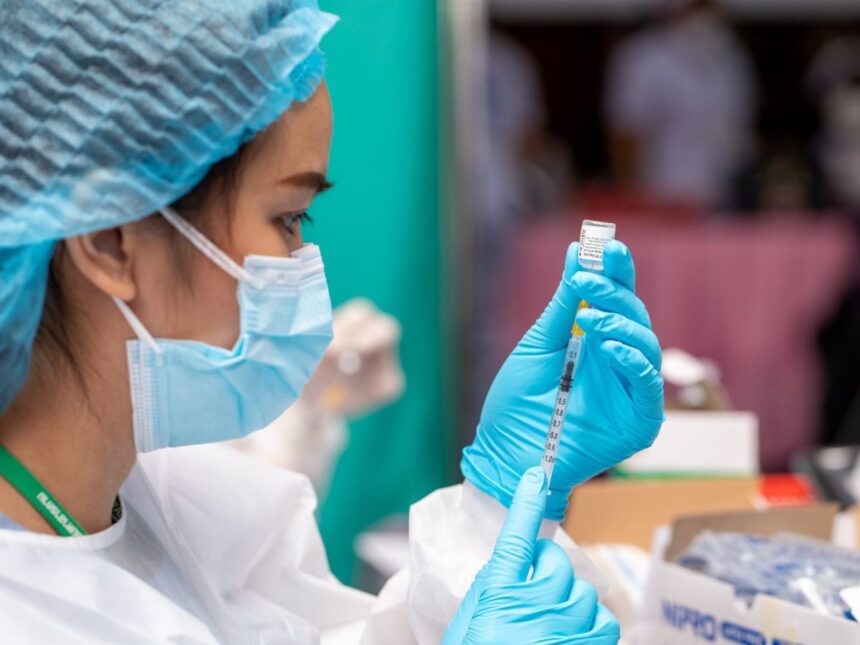The vaccination programme UK has to offer is a comprehensive public health program that aims to protect the UK population from infectious diseases. The program is designed to provide access to safe and effective vaccines to people of all ages, free of charge. The program’s success is based on a robust infrastructure, including trained healthcare professionals, well-established immunization schedules, and effective communication strategies.
How does the Vaccination Programme work?
The vaccination programme in the UK is coordinated by Public Health England (PHE), an executive agency of the UK Department of Health and Social Care. PHE is responsible for developing and implementing vaccination policies, monitoring vaccine safety, and maintaining vaccination records.
The National Health Service (NHS) delivers the Vaccination Programme through a network of healthcare professionals, including GPs, nurses, and pharmacists. These professionals administer vaccines to eligible individuals in various settings, such as hospitals, clinics, schools, and community centers.
The vaccines used in the vaccination programme are selected based on their safety, efficacy, and suitability for the target population. The vaccines undergo rigorous testing and evaluation by the Medicines and Healthcare Products Regulatory Agency aka MHRA before they are licensed for use in the UK. The MHRA continuously monitors the safety and efficacy of vaccines and takes prompt action if any safety concerns arise.
Immunization Schedule
The vaccination programme in the UK follows a well-established immunization schedule, which outlines the recommended vaccines and the age at which they should be administered. The schedule is designed to provide maximum protection against infectious diseases while minimizing the risk of side effects.
The immunization schedule is updated regularly based on new scientific evidence and epidemiological data. The current immunization schedule for children in the UK is as follows:
- At 8 weeks: DTaP/IPV/Hib (diphtheria, tetanus, pertussis, polio, and Haemophilus influenzae type b)
- At 12 weeks: DTaP/IPV/Hib
- At 16 weeks: DTaP/IPV/Hib
- At 1 year: Hib/MenC (Haemophilus influenzae type b and meningococcal group C)
- At 2-8 years: flu vaccine (annually)
- At 3 years and 4 months: DTaP/IPV booster and MMR (measles, mumps, and rubella)
- At 12-13 years: HPV (human papillomavirus)
- At 13-18 years: MenACWY (meningococcal groups A, C, W, and Y)
Adults are also recommended to receive certain vaccines, including the flu, pneumococcal, shingles, and travel vaccines.
Future of Vaccination in the UK
The UK has successfully reduced the incidence of infectious diseases and improved public health. However, challenges still need to be addressed to ensure that the program continues to meet the evolving health needs of the population.
1. Vaccine Hesitancy as a Challenge
One of the challenges is vaccine hesitancy. Vaccine hesitancy refers to the reluctance or refusal to receive vaccines despite their availability. Various factors, such as misinformation, distrust of authorities, and cultural beliefs can cause vaccine hesitancy.
2. Strategies to Address Vaccine Hesitancy
The UK government and healthcare professionals have implemented various strategies to address vaccine hesitancy, such as public education campaigns, community engagement, and targeted messaging.
Emergence of New Infectious Diseases
Another challenge is the emergence of new infectious diseases and the evolution of existing ones. The COVID-19 disease is a prime example of how quickly a new infectious disease can spread and cause significant harm to public health and the economy. The UK government has responded to the pandemic by rapidly developing and implementing a vaccination programme to vaccinate the entire population. As of April 2023, over 85% of the UK population has been fully vaccinated against COVID.
COVID-19 Vaccination Programme
In addition to COVID-19, other infectious diseases, such as measles and meningitis, continue to pose a threat to public health. The UK government and healthcare professionals are working to increase vaccine uptake and develop new vaccines to address these diseases.
Addressing Other Infectious Diseases
Another area of focus for the future of vaccination in the UK is vaccine development and innovation. Advances in technology and science have led to the development of new vaccine platforms, such as mRNA vaccines, that have shown promising results in clinical trials. The UK government and private sector are investing in research and development to advance vaccine technology and develop new vaccines for infectious diseases.
To Conclude:
The vaccination programme UK offers is a comprehensive public health program that aims to protect the population from infectious diseases. The NHS delivers the program through a network of healthcare professionals, and the vaccines used are selected based on their safety, efficacy, and suitability for the target population. The immunization schedule is regularly updated based on scientific evidence and epidemiological data.
While these programs have been highly successful in reducing the incidence of infectious diseases, challenges still need to be addressed, such as vaccine hesitancy and the emergence of new infectious diseases.
The UK government and healthcare professionals are working to increase vaccine uptake, develop new vaccines, and advance vaccine technology to address these challenges and ensure that the program continues to meet the evolving health needs of the population.
